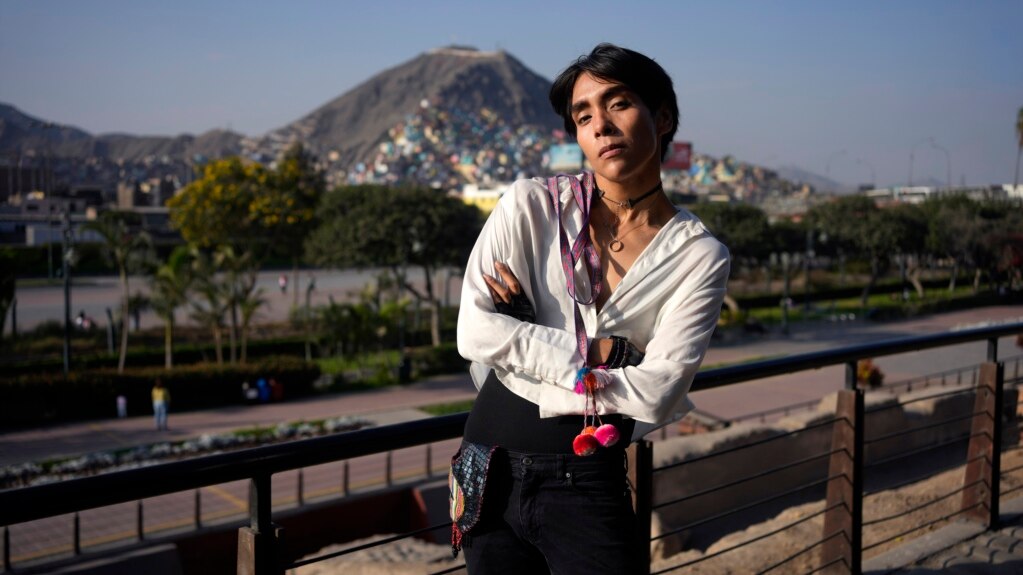Lenin Tamayo is named after the leader of the Russian Revolution, Vladimir Lenin. But he wants to revolutionize Peruvian popular music.
Tamayo aims to create popular music similar to South Korean K-pop songs, but he is using Quechua, the language of the Incas.
The Incas were the people who ruled western South America before the arrival of Spanish explorers.
Tamayo grew up speaking Quechua at his home in Lima.
His music mixes beats from Korean songs with folklore from the Andes Mountain area and traditional Peruvian sounds. It appears to be popular. Tamayo has received at least 4 million “hearts” on the video social media service TikTok.
Twenty-three-year-old Tamayo is not so concerned with how many people listen on social media. Instead, he hopes to bring attention to discrimination and the importance of Peru’s past and those he claims as his ancestors.
He told Reuters: “My music had to embrace my origins strongly.”
The young singer observed that the voice was very important to the people of the Andes, calling it a “primordial sound.” And he added “the voice goes hand in hand with the language,” noting that Quechua is what will define his sound.
Quechua is spoken by about 10 million people in South America. It is the most widely used native language there. It is spoken not only in Peru but also in parts of Argentina, Bolivia, Brazil, Chile and Ecuador.
In school, Tamayo began listening to Korean popular music, or K-pop, which started being popularized internationally by the group BTS about 10 years ago.
Study of Korean culture became a way for the young singer to make like-minded friends and to deal with bullying that he said he faced because of his appearance.
Tamayo told Reuters that he saw young girls listening to K-pop and watching Korean TV dramas. By trying to make friends, he thought he could get closer to Korean culture, he said.
The result is a musical mixture that people on the internet have called “Q-pop.”
Tamayo’s first album, Amaru, was released this month. Each song is based on Incan mythology. Ideas include Kay Pacha, or the living world; Uku Pacha, or the world of the dead; and Hanan Pacha, the heavenly kingdom. On stage, Tamayo dances and looks like a Korean male performer. But the sound of the music is based on traditional instruments from the Peruvian mountains.
Fans who recently attended a Lenin Tamayo performance were happy to take selfies and talk about the new artist. Gabriel Castro spoke to Reuters about it. He said the new music “helps raise awareness among all our people, all our new generations and the older ones too, who are part of Peru.”
I’m Mario Ritter, Jr.

